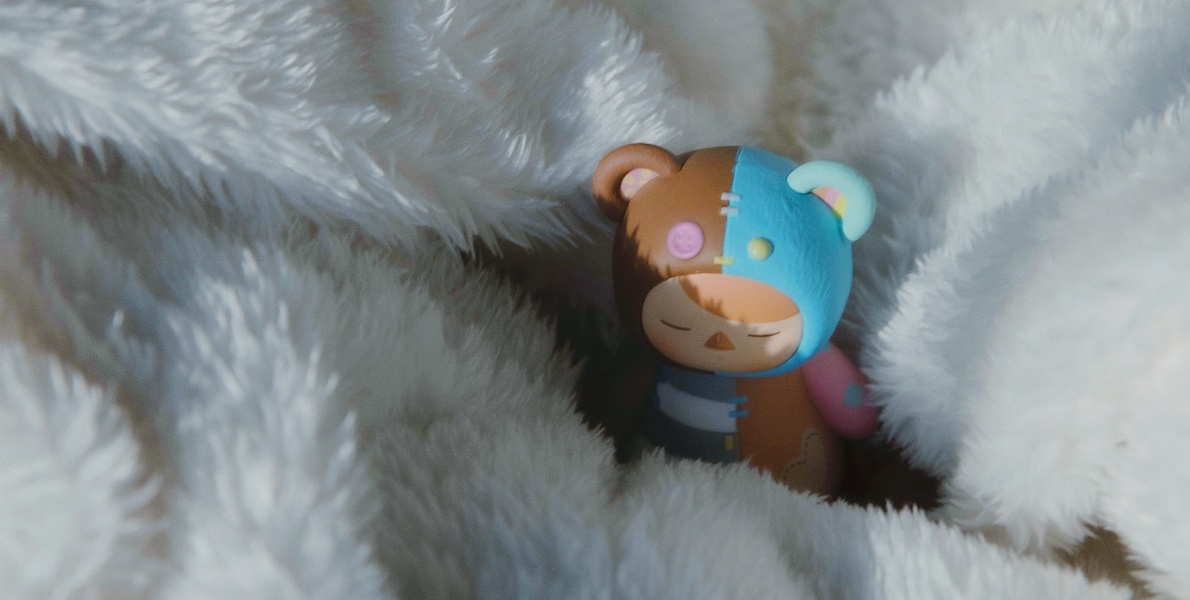Weighted blankets have risen in popularity over the past few years.
These blankets were touted as relief for anxiety and insomnia sufferers.
Weighted blankets have also been purported to help children and others with sensory conditions like Attention Deficit Hyperactivity Disorder (ADHD) and similar issues.
Do weighted blankets work?
Does the added heaviness provide the user with calming relief from their symptoms?
To find the answers to these questions, it is important to understand the trend and what it is all about.
📎 What is a Weighted Blanket?
📎 How Weighted Blankets are Thought to Work?
📎 Weighted Blankets for Insomnia
📎 Weighted Blankets for ADHD
📎Effects on Stress and Anxiety
📎Weighted Blankets and Safety
📎Care for a Weighted Blanket
What is a Weighted Blanket?
The popularity of weighted blankets increased substantially in 2017 when a company called Gravity Blanket started a Kickstarter campaign and raised more than $4 million.
The following year, weighted blankets became even more popular and the trend caught hold.
Weighted blankets are simply blankets with weights distributed throughout to make them heavy.
The average weight of weighted blankets ranges from around five pounds to 20 pounds.
Small weights are placed evenly throughout the to give it the added heaviness.
The weights can be beads made of glass or steel, polyester fill, or even natural materials like rice or barley grains.
Before purchasing a weighted blanket, it is a good idea to understand how the weights are secured inside the blanket.
If the weights are allowed to move freely around inside the fabric, the weight can settle on one side while you are sleeping.
Look for blankets with pockets stitched inside to hold the weights in place.
Weighted blankets come in many fabric types.
For uses by people with sensory issues, the choice of fabric is as important as the weight of the blanket.
How Weighted Blankets are Thought to Work?
Aside from the obvious fact that a heavier blanket will provide added warmth and coziness for users, weighted blankets are supposed to provide extra comfort for people in certain situations.
Do weighted blankets work?
Theories exist but have not yet been proven or substantiated by science and research.
The added weight of a weighted blanket is supposed to offer another form of Deep Pressure Stimulation (DPS) much like a hug, holding, or swaddling would.
The use of weighted blankets has not been established by research as a source of DPS.
However, DPS itself has been supported by research as useful in therapeutic settings.
The idea behind the use of weighted blankets is that the added weight promotes or stimulates some of the body’s hormones.
Weighted blankets are thought to promote melatonin, thereby promoting sleep and fighting insomnia and anxiety.
Weighted blankets are thought to stimulate the production of dopamine and serotonin.
Both are neurotransmitters that affect the body’s mood, stress, and happiness levels.
Another hormone, cortisol, is responsible for the control of the body’s stress responses.
Weighted blankets are thought to reduce the amount of cortisol the body produces thereby decreasing stress levels in certain situations.
Weighted Blankets and Safety
Night after night you struggle to fall asleep.
As soon as the lights go out your brain reviews everything that happened throughout the day.
You can’t sleep, and your anxiety has increased as well.
Is cuddling up under a weighted blanket the answer?
Do weighted blankets work for insomnia?
Study results are mixed.
The research was conducted to measure the effects of weighted blankets on children with autism spectrum disorders (ASD) with sleeping problems.
The study concluded that there was no improvement in the children’s ability to fall asleep, remain asleep, or awaken less in the middle of the night.
In one study, adult study participants with a recent history of insomnia were tested while using weighted blankets for two weeks.
The study revealed many physiological and behavioral improvements during the use of the blankets.
Patients reported calmer sleep and less restlessness.
The study concluded that the use of a weighted blanket may aid insomnia sufferers to achieve better quality sleep.
Weighted Blankets for ADHD
While it has not been proven just how weighted blankets work, some studies have shown promise in the fact that they do work in some situations.
Forty-two children between the ages of eight and 13 participated in the study.
Half of the children were normal, healthy children with no known brain disorders.
The other 21 children had been diagnosed with ADHD.
The study concluded that the children with ADHD fell asleep faster with the use of a weighted blanket.
The study also confirmed that the attention spans and activity levels of the children with ADHD improved by 10 percent in the classroom after the use of a weighted blanket.
Effects on Stress and Anxiety
There is good news in the use of weighted blankets on anxiety sufferers.
One small study of 32 adult participants concluded that the use of a weighted blanket for just five minutes reduced anxiety.
Other studies have yielded similar results.
Another group of 30 adults while hospitalized for mental health issues revealed a 60 percent reduction in anxiety while using 30-pound weighted blankets.
Weighted Blankets and Safety
For most healthy adults, weighted blankets are safe to use.
The prevailing wisdom is that the weighted blanket should be around 10 percent of the user’s body weight.
The blanket should not go under seven percent of body weight or over 12 percent.
Weighted blankets are not recommended for small children under the age of three.
Two deaths have been reported in children using weighted blankets.
In one case, a seven-month-old baby died. In another, a nine-year-old child with autism passed away while using a weighted blanket.
A few medical conditions prevent the safe use of weighted blankets.
Patients with asthma, cardiovascular and pulmonary conditions or sleep apnea should not use weighted blankets.
Care for a Weighted Blanket
Some weighted blankets come with an outer covering that can be removed and placed in a washing machine.
Some weighted blankets are machine washer-friendly, but a few require dry cleaning.
Despite a few promising studies, it is still too early to declare whether the science behind weighted blanket use proves its effectiveness or not.
What is clear is that some users of weighted blankets have found comfort and relief from stress and anxiety.





